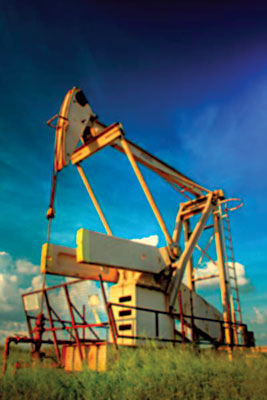All Nonfiction
- Bullying
- Books
- Academic
- Author Interviews
- Celebrity interviews
- College Articles
- College Essays
- Educator of the Year
- Heroes
- Interviews
- Memoir
- Personal Experience
- Sports
- Travel & Culture
All Opinions
- Bullying
- Current Events / Politics
- Discrimination
- Drugs / Alcohol / Smoking
- Entertainment / Celebrities
- Environment
- Love / Relationships
- Movies / Music / TV
- Pop Culture / Trends
- School / College
- Social Issues / Civics
- Spirituality / Religion
- Sports / Hobbies
All Hot Topics
- Bullying
- Community Service
- Environment
- Health
- Letters to the Editor
- Pride & Prejudice
- What Matters
- Back
Summer Guide
- Program Links
- Program Reviews
- Back
College Guide
- College Links
- College Reviews
- College Essays
- College Articles
- Back
Fracking Impacts MAG
Thick black smog shrouds the sky, encircling the town below. Daily accounts of black lung, pneumonia, and other serious medical conditions bombard the citizens, whose trust in the big boom of coal mining has quickly diminished, unlike the unsettling clouds of smog that suffocate mining towns even today. To make matters worse, miners themselves face dangerous work conditions. Although countless efforts have been made to stop it, fracking continues to haunt the world at large.
Hydraulic fracturing – fracking for short – is a relatively new way to extract oil and natural gas from rock formations offshore and on land from which it was previously difficult to get. The process is controversial because of concerns about its environmental impact and its effects on the economy.
“People, wildlife, farms, and communities are at risk from the shale gas industry and its effects on air quality, landscapes, infrastructure, and the economic status of our state,” says Brook Lenker, executive director of the FracTracker Alliance, a nonprofit that seeks to provide the public with information on the oil and gas industry.
Much of the fracking activity in Pennsylvania occurs in the southwestern and north central regions. Fracking has caused job booms in Pennsylvania, although they tend to follow an “episodic” pattern due to the ebb and flow of gas production. “You can notice the dichotomy: when an area is not being fracked, there are far fewer trucks on the roads,” Lenker says. “When drilling and fracking are booming, you see a steady rise in the influx of drilling-related traffic.”
It is not uncommon for fracking’s negative impact to snowball when the industry booms. Transporting drilling equipment has taken a toll on Pennsylvania’s highway systems, which adds to the costs of maintaining vital transportation corridors – and this is not the only area affected by fracking.
The economic consequences of gold mining years ago dramatically parallel fracking today. Westward expansion and the desire to settle new territories contributed to mining’s glory days. “Boomtowns” sprung up to accommodate the flood of prospectors seeking gold, since gold meant land, and land meant money. Jobs came and went with the rise and fall of the amount of gold mined. Businesses opened and jobs were created around the comings and goings of the miners. If a town’s production of gold decreased, both miners and the local businesses suffered, and the town became deserted as people searched for new areas to settle.
Today’s fracking industry depletes trucking companies’ employment pool, with drivers quitting to haul for fracking companies. As with local businesses during the mining era, restaurants increase hours and double their shifts to welcome hungry drillers 24/7. Hotels that generally see little business suddenly fill their rooms with drillers, only to be vacated once drilling stops.
Transportation and employment are not the only areas that fracking affects. Heavy truck traffic, the unnatural sounds of drilling, bright lights, and flaring can mar a tourist’s weekend getaway and cause an obvious annoyance. Because many of the workers involved in fracking in Pennsylvania come from out of state, hotels fill with workers from places like Texas and Oklahoma where the oil and gas industries are extensive, creating less room for tourists.
Mortgage-related issues can arise from banks that are concerned with fracking’s high risks not wanting to lend money to homeowners who lease out their land to be drilled. If the property becomes damaged environmentally, the value drops, and the banks could be stuck. Homeowner insurance policies are also getting more difficult to obtain for those who have leased drilling rights.
The Keystone Research Center reports that over 72,000 people were hired last year in the fracking industry in Pennsylvania alone, and that number may double in the coming years if production remains constant.
Analyzing the causes and effects of fracking, economically and socially, begs the question: Are we truly benefiting from a process that causes drastic environmental impact and teeter-tottering job opportunities? Lenker concludes, “There is much influence wielded by the energy companies and so much at stake.”

Similar Articles
JOIN THE DISCUSSION
This article has 0 comments.
